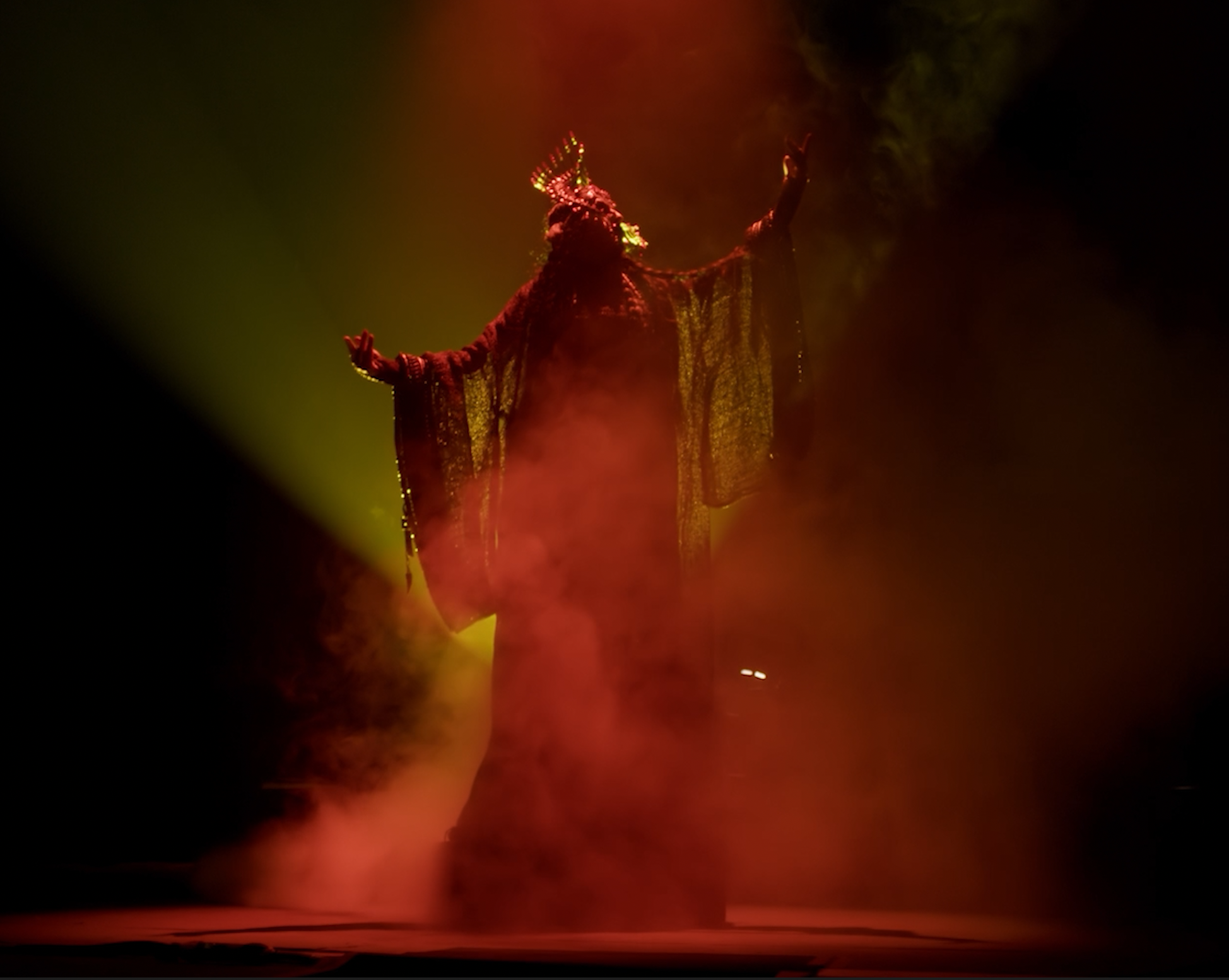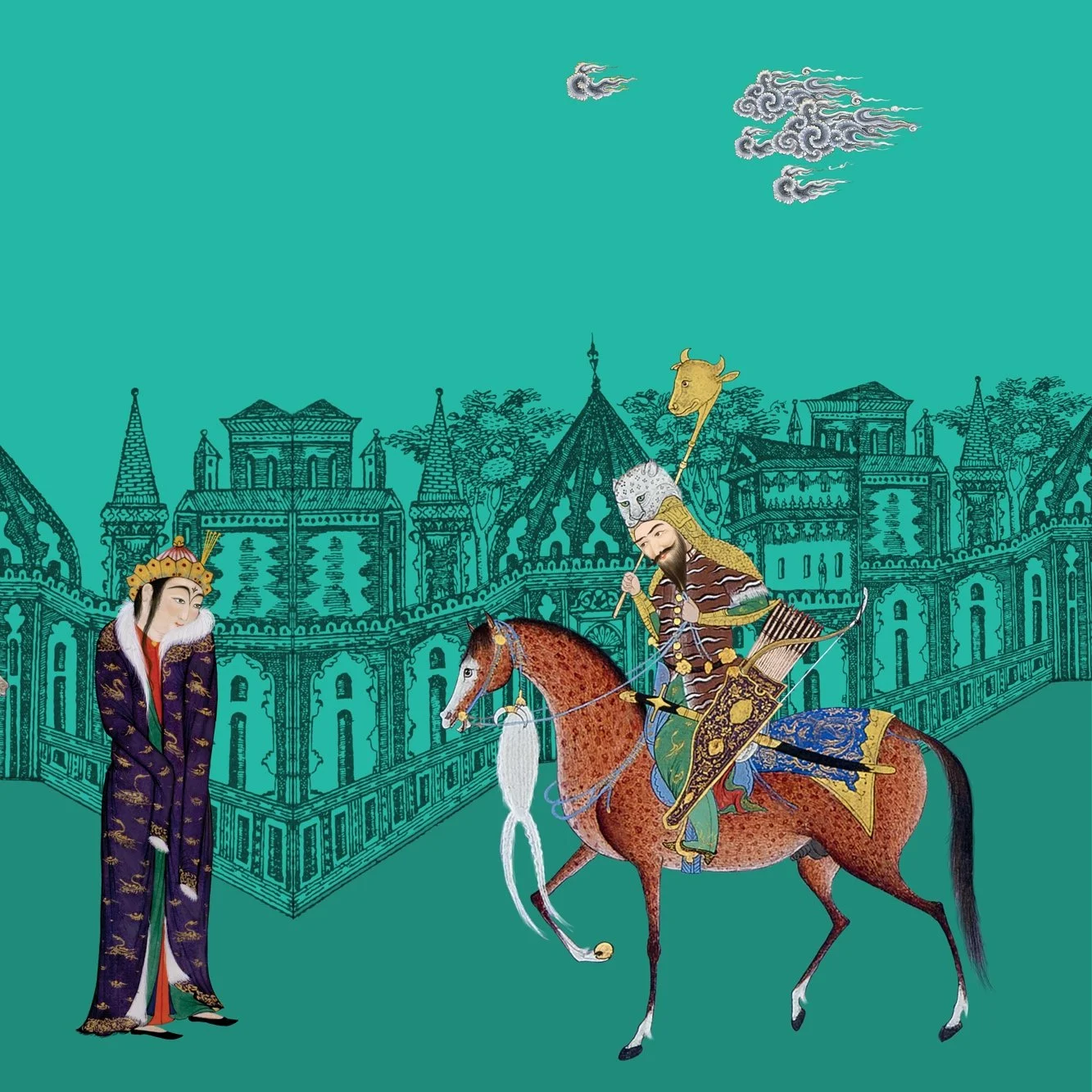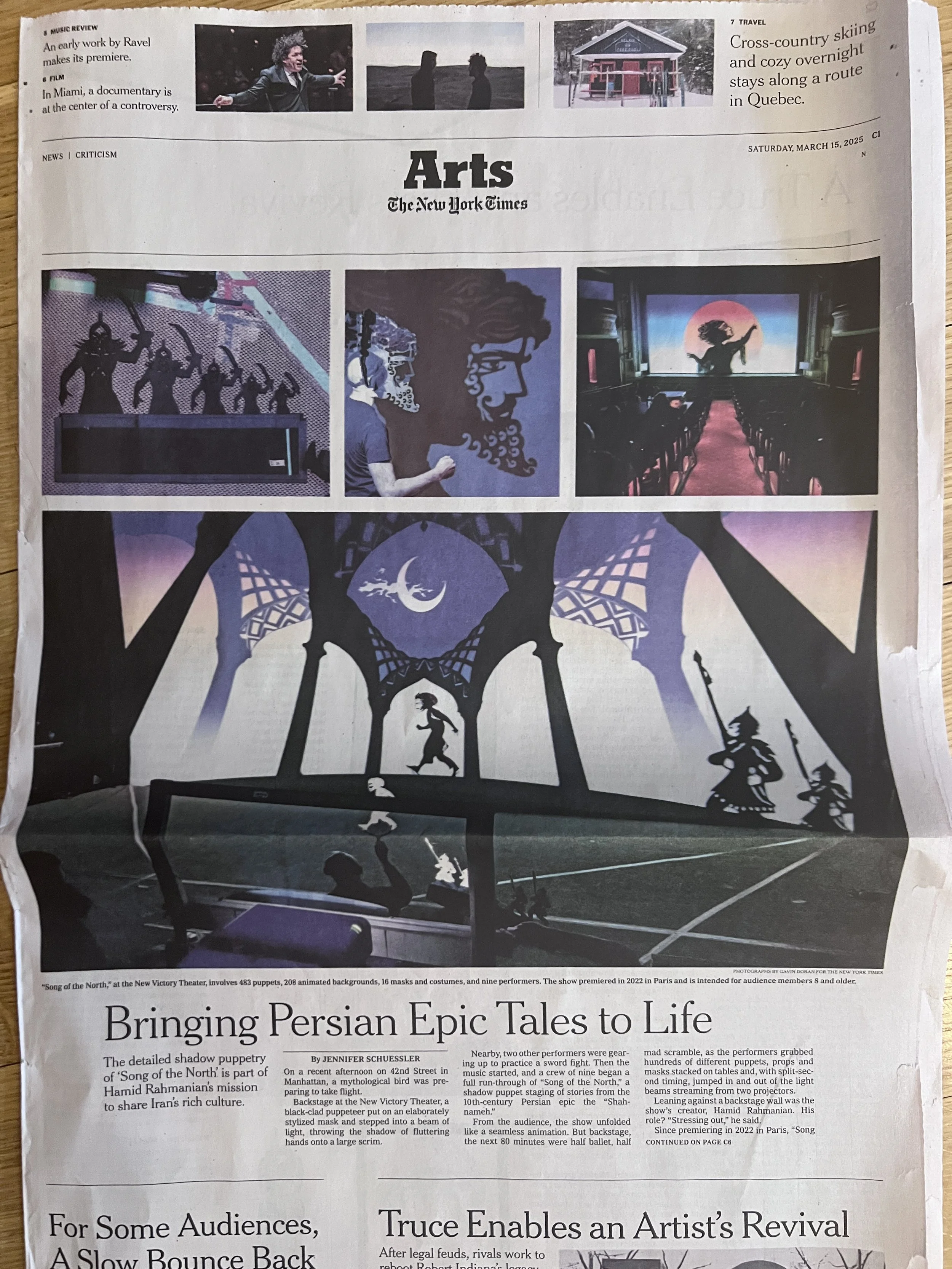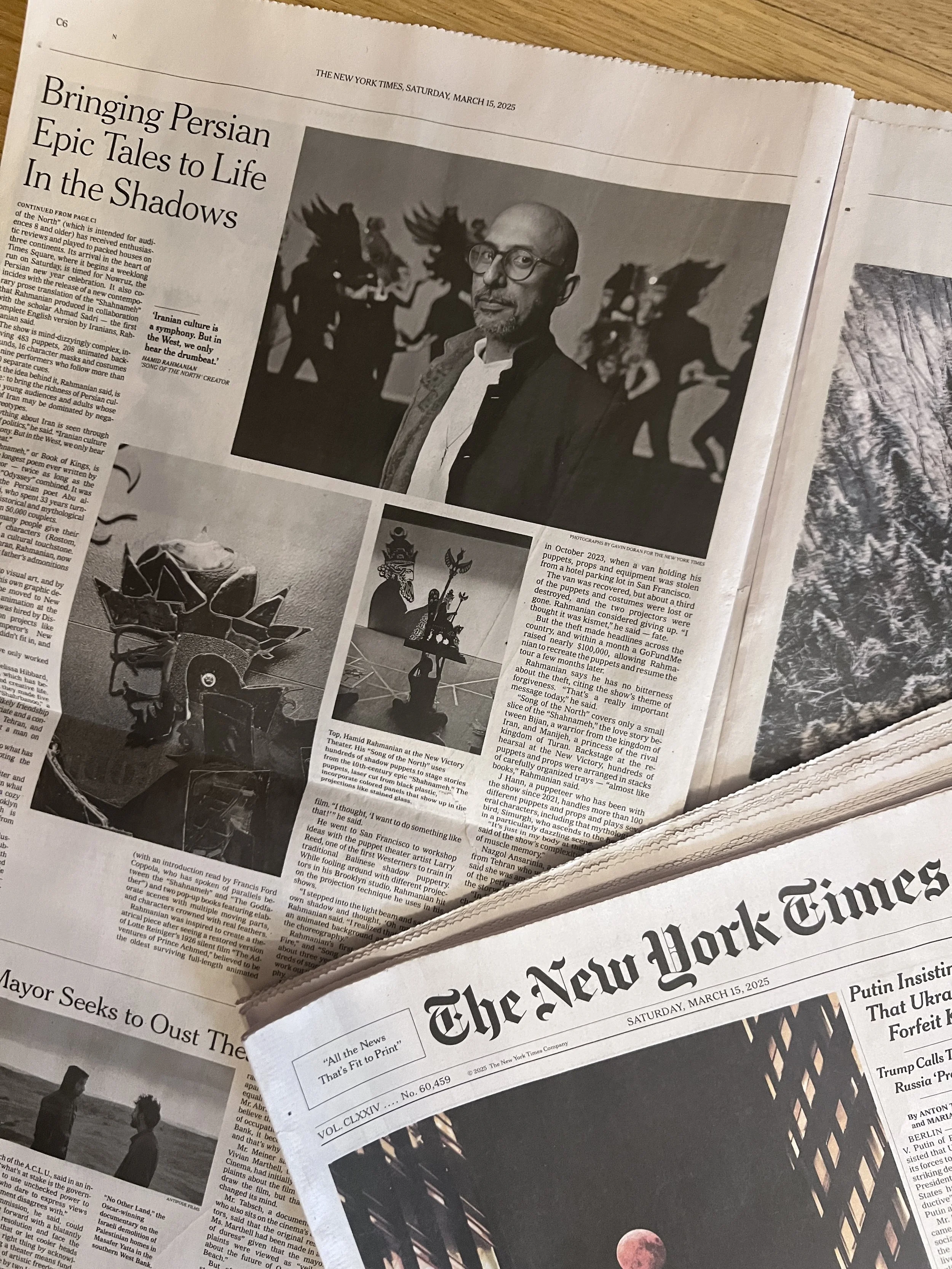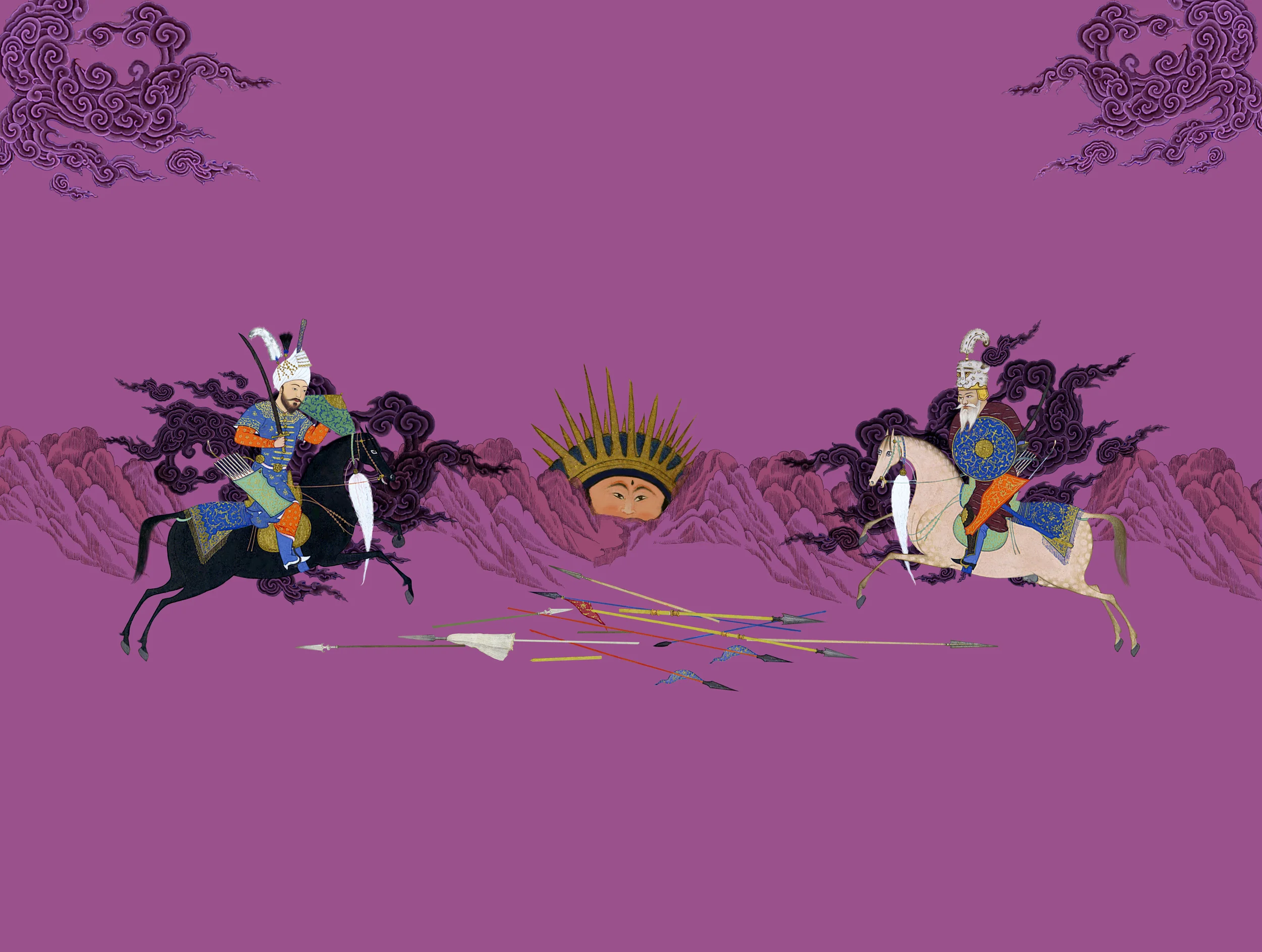ABOUT US
Kingorama is a website that presents the works on Shahnameh, created and produced by award-winning artist Hamid Rahmanian. It all started with an idea to bring the little-knowns stories of Shahnameh (The Book of Kings) to the West. Written by the Iranian poet Ferdowsi in the tenth century, Shahnameh weaves togethers Iran's ancient myths, epic stories and history into a great epic poem.
Our goal is to present the tales of Shahnameh on a variety of platforms, so that it reaches a diverse audience across the globe.
Our Team
Hamid Rahmanian is a 2014 John Guggenheim Fellow and the recipient of the 2020 United States Artists Fellowship. His work centers on theater, moving image, and graphic arts. His work has been exhibited in international competitions and publications. His films have screened at Venice, Sundance, Toronto, Tribeca, and IDFA film festivals and broadcast on PBS, Sundance Channel, IFC, Channel 4, BBC, DR2, and Al Jazeera. Mr. Rahmanian undertook the immense task of illustrating and commissioning a new translation and adaptation of the tenth-century Persian epic poem Shahnamehby Ferdowsi, entitled Shahnameh: The Epic of the Persian Kings (2013). This best-selling 600-page art book, which the Wall Street Journal lauded as a “masterpiece,” is currently in its second edition (Liveright Publishing). In 2017, he released an immersive audiobook version of Shahnameh: The Epic of the Persian King, with an introduction by Frances Ford Coppola. In 2018, he released a pop up book, entitled, Zahhak: The Legend of the Serpent King(Fantagraphics Books) in English and French which received the Meggendorfer Prize for the Best Pop Up Book and was hailed “Simply breathtaking” by Le Monde. In 2014, Rahmanian shifted his focus to theater arts, working with shadows and digital media. To date, he has created five theater pieces: Zahhak: The Legend of the Serpent King (2014), Mina’s Dream (2016), commissioned by the Onassis Foundation), and UNIMA-USA award winning Feathers Of Fire (2016) which toured in 23 cities around the world to an audience of over 100,000. In 2019, he was commissioned by Yo Yo Ma’s Silk Road Ensemble to create a video animation for their new multimedia project, Heroes Take Their Stand. Mr. Rahmanian completed his latest stage production, Song of the North, which premiered at the Booklyn Academy of Music in 2022 and is currently touring around the world. His most recent project, the new pop up book, The Seven Trials of Rostam is now available. Download Hamid's full biography.
Melissa Hibbard co-founded the production company Fictionville Studio with her partner, Hamid Rahmanian. She produced BREAKING BREAD (2000), SIR ALFRED OF CHARLES DE GAULLE AIRPORT (2001) and SHAHRBANOO (2002). In 2008, she produced and wrote THE GLASS HOUSE in association with the Sundance Channel, which premiered at the Sundance Film Festival and received the Human Rights Award (OSCE, Docufest) and Best Feature Documentary (Dallas Video Fest). In 2003, she co-established a non-profit organization – ARTEEAST – its mission statement to promote the arts and cultures of the Middle East and it’s worldwide diasporas in the United States; she was a board member and the ArteEast Online Director through 2007. In 2009, Melissa founded Fictionville Media; a documentary distribution service aimed at helping filmmakers self-distribute their own works. Recently she collaborated on an illustrated translation and adaptation of Persian mythology called SHAHNAMEH: THE EPIC OF THE PERSIAN KINGS (2013) as the Editorial Director.
Our Collaborators
Simon Arizpe is a paper engineer based in New York City. in 2013 his pop-up work earned him an honorable mention from the Society of Illustrators and the Museum of Comic Book Art and Cartooning inaugural Award of Excellence. Aside from his solo work, Simon is senior paper engineer at Robert Sabuda studio, where he has worked on New York Times best selling books: Star Wars: a pop-up guide to the galaxy, Dragons & Monsters, DC Comics Universe pop-up and The Little Mermaid as well as many other award winning titles. Simon is a founding member of The American Design Club.
Ahmad Sadri is professor of Sociology and Anthropology and James P. Gorter Chair of Islamic World Studies at Lake Forest College. He is the author of Max Weber’s Sociology of Intellectuals published by Oxford University Press and selected as the 1993 academic book of the year by Choice, the publication of American Library Association. He has written two books in Persian, Reviving the Concept of Civilizations and An Apocalypse Soon, and his published translations include Saddam City (from Arabic) and Reason, Freedom and Democracy in Islam (from Persian). He lives in Gurnee, Illinois.
Our Partners
Two Chairs Inc
Fictionville Studio
Banu Productions
Brooklyn Academy of Music
jim Henson foundation.
Liveright Press
Fantagraphics Books
Brooklyn Arts Council
Doris Duke Shangri La Residency Program
Honolulu Museum of Art
Canon USA
Neda Nobari Foundation









